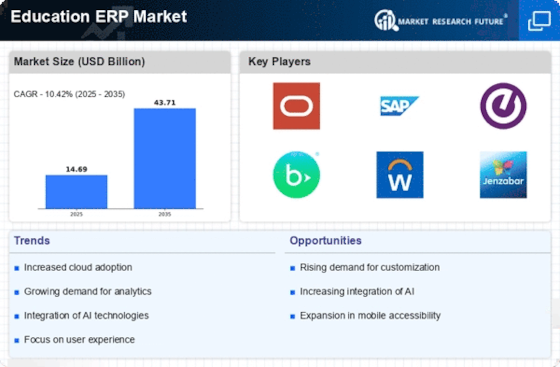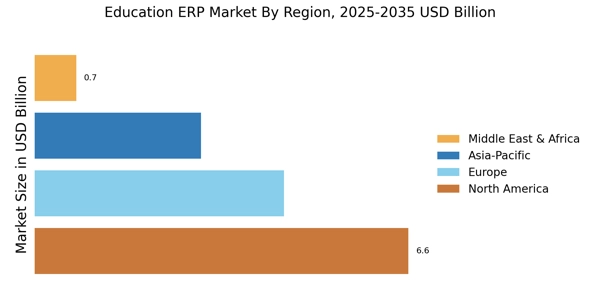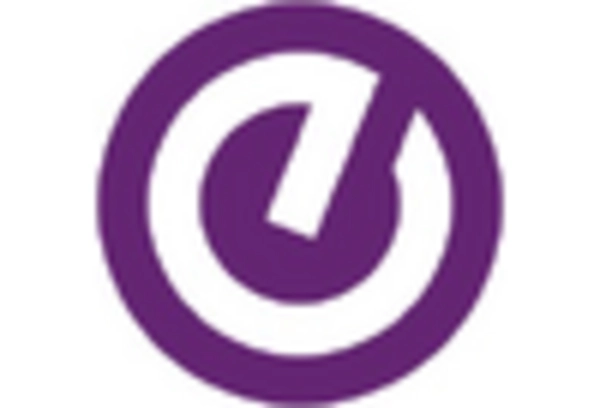Expansion of Online Education Programs
The expansion of online education programs is a significant driver in the education erp Market. As more institutions offer online courses and degree programs, the need for comprehensive ERP solutions that can manage these offerings becomes increasingly critical. Education Erp Market systems are essential for handling enrollment, course management, and student support services in an online environment. Recent statistics indicate that online enrollment has increased by over 30% in the past few years, highlighting the growing acceptance of online education. This trend is likely to continue, further propelling the demand for Education Erp Market solutions that can effectively support the complexities of online learning.
Regulatory Compliance and Data Security
In the Education ERP Market, regulatory compliance and data security are paramount concerns for educational institutions. With the increasing amount of sensitive student data being processed, institutions are compelled to adopt robust ERP solutions that ensure compliance with regulations such as FERPA and GDPR. The market is witnessing a shift towards ERP systems that offer enhanced security features, including data encryption and access controls. This focus on compliance not only protects student information but also builds trust among stakeholders. As institutions navigate the complexities of data management, the demand for Education Erp Market solutions that prioritize security and compliance is likely to rise, potentially driving market growth.
Growing Focus on Student-Centric Approaches
The Education ERP Market is witnessing a paradigm shift towards student-centric approaches in education. Institutions are increasingly recognizing the importance of personalized learning experiences that cater to the diverse needs of students. This shift is prompting the adoption of Education Erp Market systems that facilitate customized learning paths, track student progress, and provide real-time feedback. As educational institutions strive to enhance student engagement and retention, the demand for ERP solutions that support these objectives is likely to grow. This trend not only aligns with contemporary educational philosophies but also positions institutions to better prepare students for future challenges.
Increased Demand for Digital Learning Solutions
The Education ERP Market is experiencing a notable surge in demand for digital learning solutions. Educational institutions are increasingly adopting technology to enhance learning experiences and streamline administrative processes. According to recent data, the market for digital learning solutions is projected to grow at a compound annual growth rate of approximately 20% over the next five years. This trend is driven by the need for remote learning capabilities and the desire for more interactive educational environments. As institutions seek to improve student engagement and outcomes, the integration of Education ERP Market systems becomes essential. These systems facilitate the management of learning resources, student data, and administrative tasks, thereby supporting the overall educational mission.
Integration of Artificial Intelligence and Analytics
The integration of artificial intelligence (AI) and analytics within the Education ERP Market is transforming how educational institutions operate. AI-driven tools are being utilized to analyze student performance data, enabling institutions to tailor educational experiences to individual needs. This trend is supported by the increasing availability of data analytics tools that provide actionable insights. Institutions that leverage these technologies can enhance decision-making processes, improve resource allocation, and ultimately boost student success rates. The potential for AI to automate administrative tasks further streamlines operations, making Education ERP Market systems more attractive to institutions seeking efficiency and effectiveness.

















